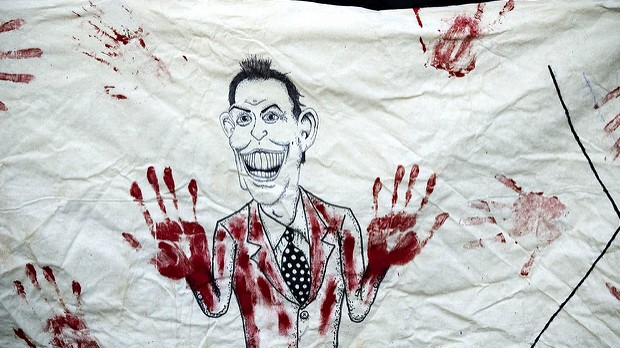Chilcot’s Verdict on the Iraq War

It’s been a long time coming, but the Chilcot report into the Iraq War, all 2.6 million words of it, is finally out. And contrary to pessimistic expectations, it’s far from a whitewash. Although it will take some time to wade through the details of this hefty document, it’s already clear that few people have escaped the careful and critical eye of the inquiry—including Tony Blair, the intelligence community and the military.
The report’s key point is that the Iraq War happened principally because of failures to challenge key parts of the case for war and to plan for the invasion’s aftermath. From the outset, the report makes clear that the war was not one of last resort, that Iraq posed no imminent threat to the United Kingdom, that the intelligence assessments the government drew on were ill-founded, and that more peaceful options should have been exhausted before military ones were entertained.
In fact, the UK’s strategy of containment and smart sanctions appeared to be working, and could have continued for some time. But a change in government strategy was met with little political challenge in the security-minded post-9/11 world. And while the inquiry was not tasked with taking a stance on whether the war was legal, it concludes that “the circumstances in which it was decided that there was a legal basis for UK military action were far from satisfactory”.
On this point, Tony Blair and Lord Goldsmith, the former attorney general, come in for particular scrutiny.
Change of course
Between January and February 2003, Goldsmith changed his legal recommendation on whether a second United Nations resolution was necessary to provide a legal basis for military action. This change of heart was met with some challenge from the civil service and the military, but it was addressed without clarity and without any written advice explaining how the prime minister could make a decision contrary to the UN Security Council.
The inquiry’s view of this incident is clear: “This is one of a number of occasions identified by the Inquiry when policy should have been considered by a Cabinet Committee and then discussed by Cabinet itself.”
The report also reiterates the lack of challenge within and towards the intelligence agencies that formed part of the findings of the 2004 Butler report into weopons of mass destruction (WMD). The Chilcot report states that the assessments on which a case for war was based stemmed from “an ingrained belief” in the UK intelligence agencies that Iraq had chemical and biological capabilities and the ability to develop a nuclear capability.
Although the report holds Blair accountable for overstating Iraqi capabilities in parliament and in the September dossier, as late as 17 March 2003, the then-chairman of the Joint Intelligence Committee, Sir John Scarlett, was advising Blair that Iraq possessed chemical and biological weapons, the means to deliver them and the capacity to produce them.
These assessments, later proved inaccurate, were challenged neither within the Joint Intelligence Committee nor by Blair himself. The report concludes that “It is now clear that policy on Iraq was made on the basis of flawed intelligence and assessments. They were not challenged, and they should have been”.
Failure to plan
The report also finds that once it was clear that war was coming, there were severe shortcomings in planning. This includes the lack of military preparation leading to a number of equipment shortfalls which are examined in more detail in the report.
In addition, it concedes that post-conflict planning was woefully lacking due to an assumption that work would be conducted by a “well-executed US-led and UN-authorised operation in a relatively benign security environment”. This, the report concludes, was an inexcusable failure. Tensions within Iraq, Iranian influence, regional instability and al-Qaeda activity had all been identified as major risks by the intelligence agencies and the Foreign and Commonwealth Office, and Blair had been frequently warned of what was likely to be unleashed.
The report also finds that the government was unprepared for its post-conflict responsibilities in terms of organisation, personnel and cost: “The scale of the UK effort in post-conflict Iraq never matched the scale of the challenge.” The Ministry of Defence is criticised for failing to respond quickly to the threat of improvised explosive devices, and for spreading itself too thinly in terms of equipment and manpower between Afghanistan and Iraq, with the former draining resources needed for the latter.
Many of these criticisms have already been acknowledged. In his parliamentary address on the report after its launch, David Cameron stated that the problem of challenge had already been overcome through the establishment of the National Security Council in 2010. Issues relating to intelligence were implemented post-Butler, and the failures of post-operational planning have long since been admitted.
Nonetheless, there will be many other vital lessons to be learned for the future—and which will no doubt be uncovered as the country digests the 2.6 million words Chilcot has just fed it.
Louise Kettle is an associate professor at the University of Nottingham. This article was originally published on The Conversation on 6 July. It is republished with permission. AIIA NSW is hosting an event on “The UK’s War Inquiry: What Does it Mean for Australia” on Tuesday 12 July.





